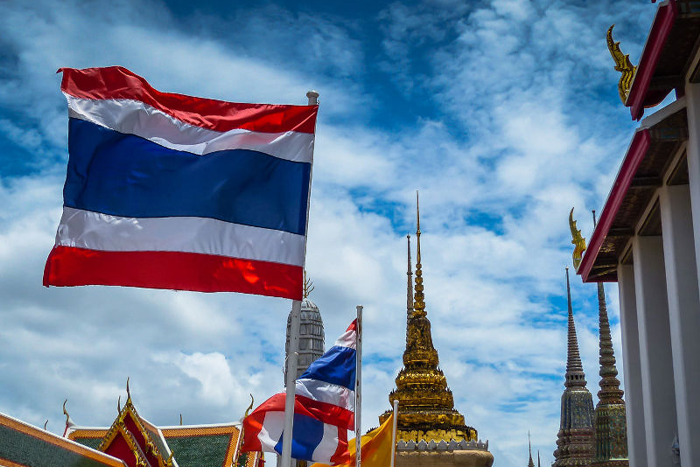October 2018 |
With the growing tensions between the USA and China, Taiwan is re-emerging as a factor in the wider Asia-Pacific region. At the same time, Taiwan is a significant economic presence in some ASEAN countries and the administration of Tsai Ing-Wen has talked about a “New Southbound Policy” that could potentially deepen engagements. Can this move ahead, even as Taiwan’s relations with Beijing remain unsettled?
I visited Taiwan from 19 to 22 September 2018, meeting with a number of key ministers and officials as well as various think-tanks. Please allow me to share the following points with you on a confidential basis, as our member and friend:
1. China’s Diplomatic Pressure on Taiwan: Since coming into office, President Tsai has refused to acknowledge the 1992 Consensus and the “One China policy” in the way that Beijing seeks. In recent months, Beijing has sought to limit the “international space” available to Taiwan. One measure is to win over recognition from Taiwan’s few remaining diplomatic allies. China has further undermined Taiwan’s legitimacy by coercing international companies to address Taiwan as a part of China. Officials point to efforts that mainland is taking steps to further reduce Taiwan’s “international space” in international organizations. However, they report that the USA and “like minded states” like the UK support their effort to retain their level of access in international organizations like the ICAO and WHO. China’s pressure on Taiwan is felt to be growing.
2. Stronger Ties with the United States: Taiwanese officials say that relations with the USA have strengthened “profoundly”, and that relations have never been better than they are under the Trump administration. This is not only with President Trump himself but with key players in the White House and State Department like National Security Advisor John Bolton. This is illustrated by the recent decision of El Salvador and other Central American states to switch recognition. The Trump administration took the step to recall US ambassadors as a sign of displeasure. This is not only because of Taiwan’s interests but a recognition that China’s influence has grown in these countries and the Western hemisphere – breaching the Monroe doctrine. Nevertheless, some stakeholders we met expressed concern that the USA’s material contributions will not ultimately match their elevated rhetoric. A few of the Taiwanese think tanks acknowledge the possibility that Taiwanese might be a bargaining chip to President Trump.
3. US-China Trade War: They see the US-China trade war as being part of a longer term confrontation between the two countries. Taiwan’s business ties with the mainland continue, with cross-straits trade increasing year-on-year. However, they are willing to play a part in this and there has been some talk of heightened security ties and being open to establishing a US presence in Kaohsiung. Many larger Taiwanese companies fear that increased pressure on the Mainland will threaten their own positions on the global value chain, however, and have begun moving out of China. The Taiwanese government is trying to convince these companies to relocate some higher-level operations, such as R&D, to Taiwan itself. However, many companies are gravitating towards South and Southeast Asia.
4. The New Southbound Policy (NSP): Taiwanese officials indicated that efforts to ramp up engagement with South and ASEAN are gaining ground, citing increased economic linkages and people-to-people exchanges in education and tourism. In looking South, Taiwan has focused on six countries (Vietnam, Indonesia, Malaysia, Myanmar, the Philippines and India) and recently added Singapore and Australia. Investment numbers are more difficult to track and evaluate; in part because Taiwanese were using companies incorporated overseas. The Taiwanese public are also asking about tangible benefits of the NSP to local individuals and businesses. Taiwanese Small and Medium Enterprises (SMEs) remain particularly concerned about start-up costs associated with gaining a foothold abroad – even in more affordable locations within Southeast Asia. At present, they do not see Singapore serving as a hub for them to go South; Taiwanese companies tend to be cautious of high costs and also competition in Singapore, and prefer to enter their selected market directly.
5. Divergent views on the domestic political situation: Approval ratings of the Tsai administration have been falling. Criticism in the Legislative Yuan has increased, despite the majority held by the DPP. However, the KMT as the former government and main opposition has been unable to capitalize on this and is highly factionalized. In the upcoming elections, some believe it will be independents who will gain vote share, and Taipei Mayor Ko Wen-Je might play a growing part in this trend. Taiwan’s upcoming local elections –on the 24th of November this year – is seen as a barometer of public sentiment.
I hope this is of interest to you. I would be happy to hear your views on a matter that concerns many of us.
Yours sincerely,
Simon Tay
Chairman
![[Premium] Chairman’s Note (06/2018) – Taiwan and the US-China Trade War](https://siiaonline.org/wp-content/uploads/2018/10/the-urban-landscape-1698285__480.jpg)



